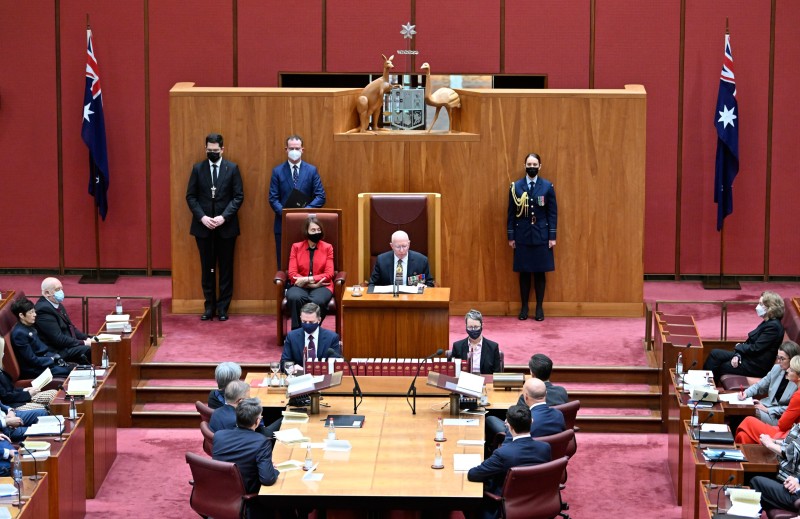Is it the duty of the Governor-General to dissolve Parliament where there is evidence of violations of the Constitution and/or International law?
Thank you, James, for your question about the role of the Governor-General.
The Australian Constitution provides information about the roles and responsibilities of the Governor-General. Section 2 broadly describes the role of the Governor-General and section 61 describes the power of the Governor-General extending to the ‘execution and maintenance of this Constitution, and of the laws of the Commonwealth’.
Although section 5 of the Constitution gives the Governor-General the power to dissolve the Parliament, it does not say the Governor-General has to dissolve the Parliament if there is evidence that the Constitution or international law has been violated. This means that while the Governor-General would have to act in such circumstances, there is no particular requirement to dissolve the Parliament.
Also, by convention – tradition –, the Governor-General acts on the advice of the Executive (in practice, the Prime Minister), so it would be an unusual situation for the Governor-General to dissolve Parliament without consulting the Prime Minister.

The Governor-General delivers a speech at the opening of a new Parliament
Penny Bradfield/DPS Auspic
The Governor-General delivers a speech at the opening of a new Parliament

Penny Bradfield/DPS Auspic
Description
The Governor-General gives a speech in the Senate at the opening of a new Parliament. There is a raised platform where the Governor-General sits in a large wooden chair speaking into a microphone. The President of the Senate is sitting in a high backed chair to the left of the Governor-General. Three people stand behind the chairs under a wood and metal representation of the Australian coat-of-arms. Senators and other dignitaries sit around the end of a T-shaped table and in rows around the room.
Permission should be sought from DPS AUSPIC for third-party or commercial uses of this image. To contact DPS AUSPIC email: auspic@aph.gov.au or phone: 02 6277 3342.